Stephen Jones is Professor of Russian and Eurasian Studies at Mount Holyoke College, Massachusetts. The author of several books on Caucasian history and politics, he has taught Soviet and Russian politics at the University of California at Santa Cruz, the University of London and Oxford University.
GEORGIA
A POLITICAL HISTORY
SINCE INDEPENDENCE
STEPHEN JONES

Published in 2013 by I.B.Tauris Co Ltd
6 Salem Road, London W2 4BU
175 Fifth Avenue, New York NY 10010
www.ibtauris.com
Distributed in the United States and Canada Exclusively by Palgrave Macmillan
175 Fifth Avenue, New York NY 10010
Copyright 2013 Stephen Jones
The right of Stephen Jones to be identified as the author of this work has been asserted by the author in accordance with the Copyright, Designs and Patents Act 1988.
All rights reserved. Except for brief quotations in a review, this book, or any part thereof, may not be reproduced, stored in or introduced into a retrieval system, or transmitted, in any form or by any means, electronic, mechanical, photocopying, recording or otherwise, without the prior written permission of the publisher.
ISBN: 978 1 84511 338 4
eISBN: 978 0 85773 586 7
ePDF: 978 1 78673 962 9
A full CIP record for this book is available from the British Library
A full CIP record is available from the Library of Congress
Library of Congress Catalog Card Number: available
For Kathleen and Avtandil, a fine example of Anglo-Georgian cooperation
Contents
Maps:
List of Illustrations
Acknowledgments
I have used some of my earlier published research in this book. Chapter 2 uses materials from Glasnost, perestroika and the Georgian Soviet Socialist Republic, in R. Suny (ed.), Armenian Review, Vol. 43, no. 23, Summer/Autumn 1990, pp. 12752; Chapter 3 incorporates material from Populism in Georgia: the Gamsakhurdia phenomenon, in D. Schwarz and R. Panossian (eds), Nationalism and History: The Politics of Nation Building in Post-Soviet Armenia, Azerbaijan and Georgia, Toronto: University of Toronto Center for Russian and East European Studies, University of Toronto Press, 1994, pp. 12749; Chapter 4 uses some material from Adventurers or commanders: civil-military relations in Georgia, in C. Danopoulus and D. Zirker (eds), Civil-Military Relations in the Soviet and Yugoslav Successor States, Boulder: Westview Press, 1996, pp. 3552; Chapter 5 is an expanded version of Democracy from below: interest groups in Georgian Society, Slavic Review, Vol. 59, no. 1, Spring, 2000, pp. 4273; the arguments in Chapter 8 are based on Georgia: from under the rubble, in L. Barrington (ed.), After Independence: Making and Protecting the Nation in Postcolonial and Postcommunist States, Ann Arbor: University of Michigan Press, 2006, pp. 24876; Chapter 9 in part draws on The role of cultural paradigms in Georgian Foreign Policy, in R. Fawn (ed.), Ideology and National Identity in Post-Communist Foreign Policies, London: Frank Cass, 2003, pp. 83110.
The book was written over a period of five years, but the information and insights were collected over a period of 30 years. Taxi drivers, school teachers, friends and family at the table, chess players in the park, colleagues in universities and libraries, parliamentarians, ministers, and even presidents all have contributed to the ideas, theories, and opinions that make up this work. Georgian government officials, oppositionists, and NGO activists granted permission for interviews with equal graciousness. Yet, even among this fascinating assembly, there are special people I want to thank.
My teachers, Professor Peter Reddaway, Leila Geguchadze, and Zeinab Ebralidze have my warmest appreciation for their long guidance and friendship. Over the years, my Georgian colleagues have deepened my understanding (and love) of Georgian politics and culture, and to all of them I am very grateful. I want to mention, in particular, those munificent souls who have read sections of the book or the entire draft Professor Ron Suny, Professor Alex Rondeli, Dr Gia Tarkhan-Mouravi, Professor Vladimer Papava, Dr Nata Sabanadze, Ambassador Tedo Japaridze, Dr Roman Gotsiridze, Professor Revaz Gachechiladze, and Dr Oliver Reisner. In the United States and United Kingdom, my generous readers included Professor Charles King, Dr Laurence Broers, Professor Valerie Bunce, and Professor Julie George. I should add thanks for my anonymous reviewers who made some very thoughtful remarks.
And then there are my friends, who in late evening conversations, have listened to my arguments and politely undone my assumptions. I especially value the late Zaal Kikodze, Khatuna Chkheidze, Gela Charkviani, Alexandre Kukhianidze, Malkhaz Matsaberidze, Ketevan Kintsurashvili, Beka Mindiashvili, Guram Svanidze, Nana Sumbadze, Levan Berdzenishvili, Nana Janelidze, Vakhtang Khmaladze, Ambassador Temuri Yakobashvili, Mamuka Tsereteli, Ghia Nodia, Tina Khidasheli, Dato Usupashvili, Paata Zakareishvili, Levan Ramishvili, Marina Chitashvili, Giorgi Khelashvili, S. Neil Macfarlane, Konstantin Pleshakov, Robert Parsons, Koba Turmanidze, Redjeb Jordania, Tornike Gordadze, Tatuna Grdzelidze, Gigi Tevzadze, Nino Saakashvili, Michael Clayton, the late Jack Griffin and Ingulina Loria. Nana Khvedeliani deserves particular mention as my very special link to the deep reserves of the National Parliamentary Library, and Davit Darchiashvili was a most generous host during my work in the archives of the Georgian parliament.
The late Konstantin Sidamon-Eristavi was a generous supporter. Without him, this book would never have reached the publisher. Rusudan Kareli gave excellent research assistance, Taylor Chustz drew my political flowchart, Khatuna Chkheidze worked with me on the chronology, Ali Brown and Nino Guruli helped me collect data on the environment, and Doreen St John drew my maps. My colleagues in the Russian and Eurasian Studies Department at Mount Holyoke (especially Peter Scotto and Edwina Cruise) listened patiently to my expositions on Georgian politics. Dean Donal OShea of Mount Holyoke College was extremely supportive.
Central to the initiation and completion of this project was the Smith Richardson Foundation, and in particular Dr Nadia Schadlow, the senior program officer for International Security and Foreign Policy, who has been an exceptionally tactful and patient monitor of a recalcitrant grantee. I want to thank all the staff at the Mount Holyoke College Library for following up on my obscure requests, and the very obliging staff of the Georgian Parliamentary Archives and of the National Parliamentary Library.
My extended family Tamuna, Gogi, Dato, Darejan, Levan, Manana, Dutu, and Tiniko provided the support that made this work worthwhile. Without Dato and Darejan, I wonder how far I would still be from completion. Most of all, to Marina, my wife, and to Lawrence and Ilya, my children, many thanks for keeping me laughing and loving when the writing was hard.
Amherst, June 2012
Transliteration and Terminology
M y transliteration system for Georgian is simple. I have cut out all diacritic marks and I make no distinction between the Georgian letters  . The letters
. The letters  I have transliterated as gh and q respectively. In a few cases, I have stuck with more familiar spellings, for example, Ilya instead of Ilia, and Yakobashvili instead of Iakobashvili. Georgians do not use capitals, a system I have followed, except for names and places. For Russian, I use the Library of Congress transliteration system. I use Georgian lari (GEL), the Georgian currency since 1992, to measure economic indices, though when the source is in US dollars I have kept it that way rather than reconvert to Georgian currencies whether rubles, coupons or lari. I convert lari into dollars if I feel it is useful for the reader (size of pensions, wages etc). Georgia is divided administratively into 67
I have transliterated as gh and q respectively. In a few cases, I have stuck with more familiar spellings, for example, Ilya instead of Ilia, and Yakobashvili instead of Iakobashvili. Georgians do not use capitals, a system I have followed, except for names and places. For Russian, I use the Library of Congress transliteration system. I use Georgian lari (GEL), the Georgian currency since 1992, to measure economic indices, though when the source is in US dollars I have kept it that way rather than reconvert to Georgian currencies whether rubles, coupons or lari. I convert lari into dollars if I feel it is useful for the reader (size of pensions, wages etc). Georgia is divided administratively into 67
Next page
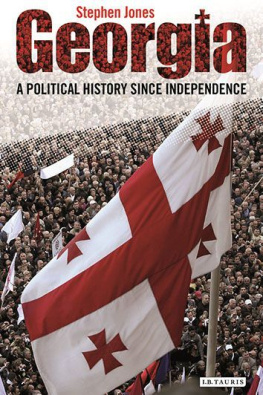
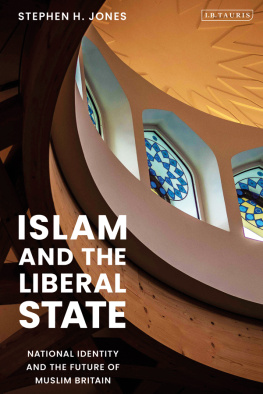

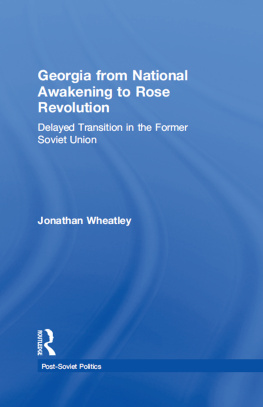
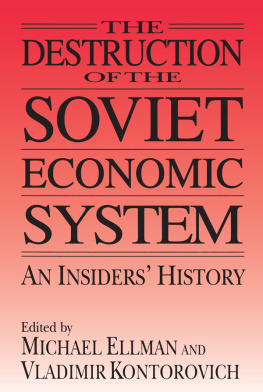

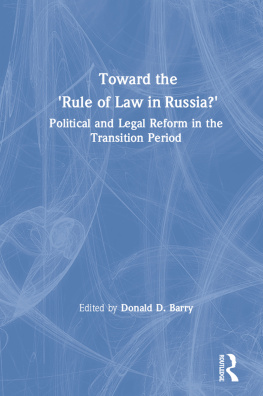
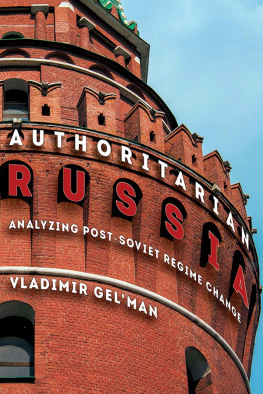
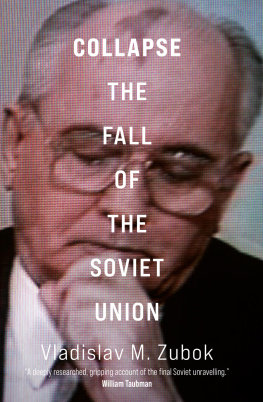
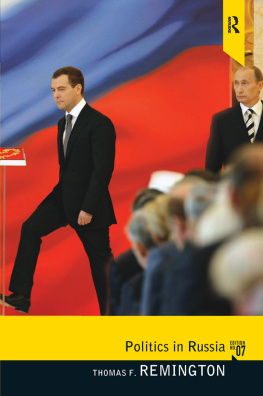
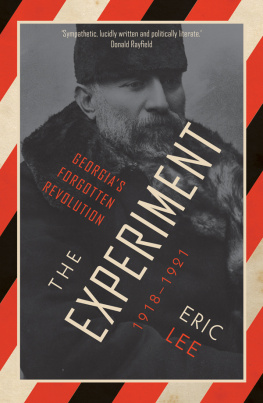
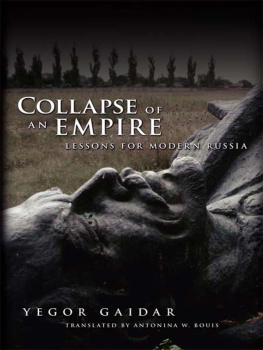

 . The letters
. The letters  I have transliterated as gh and q respectively. In a few cases, I have stuck with more familiar spellings, for example, Ilya instead of Ilia, and Yakobashvili instead of Iakobashvili. Georgians do not use capitals, a system I have followed, except for names and places. For Russian, I use the Library of Congress transliteration system. I use Georgian lari (GEL), the Georgian currency since 1992, to measure economic indices, though when the source is in US dollars I have kept it that way rather than reconvert to Georgian currencies whether rubles, coupons or lari. I convert lari into dollars if I feel it is useful for the reader (size of pensions, wages etc). Georgia is divided administratively into 67
I have transliterated as gh and q respectively. In a few cases, I have stuck with more familiar spellings, for example, Ilya instead of Ilia, and Yakobashvili instead of Iakobashvili. Georgians do not use capitals, a system I have followed, except for names and places. For Russian, I use the Library of Congress transliteration system. I use Georgian lari (GEL), the Georgian currency since 1992, to measure economic indices, though when the source is in US dollars I have kept it that way rather than reconvert to Georgian currencies whether rubles, coupons or lari. I convert lari into dollars if I feel it is useful for the reader (size of pensions, wages etc). Georgia is divided administratively into 67